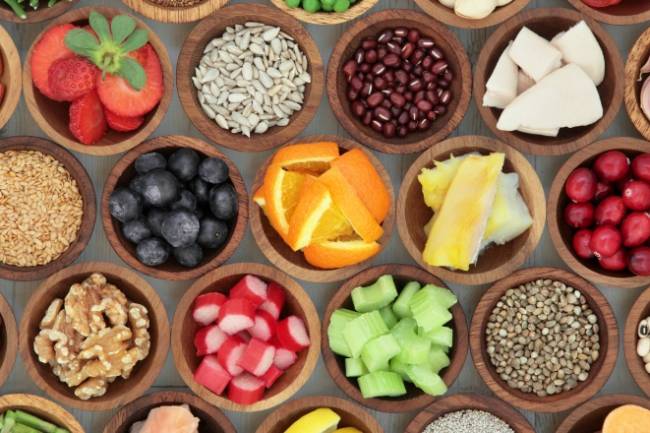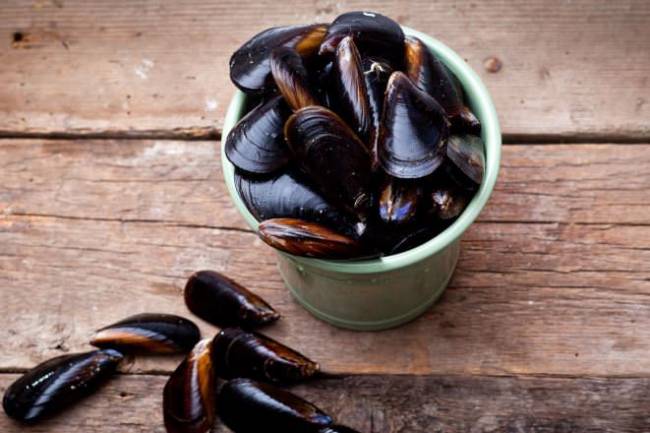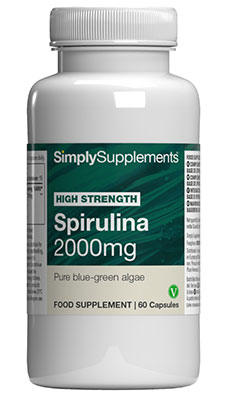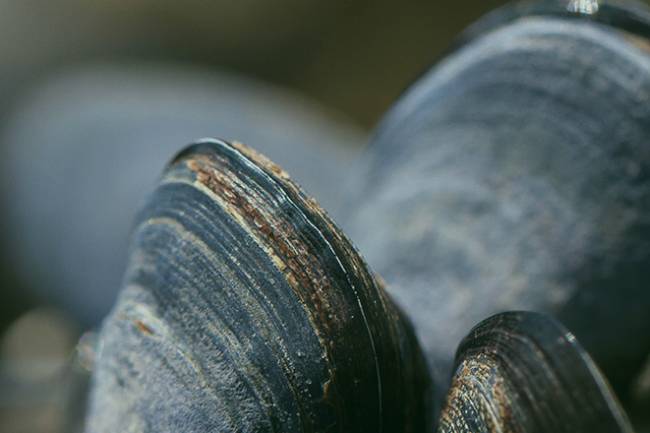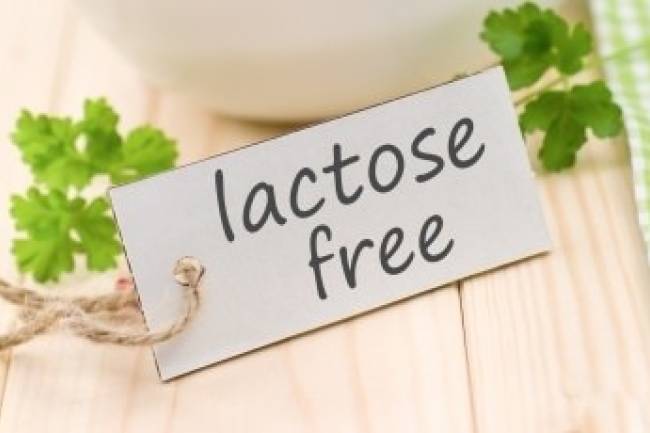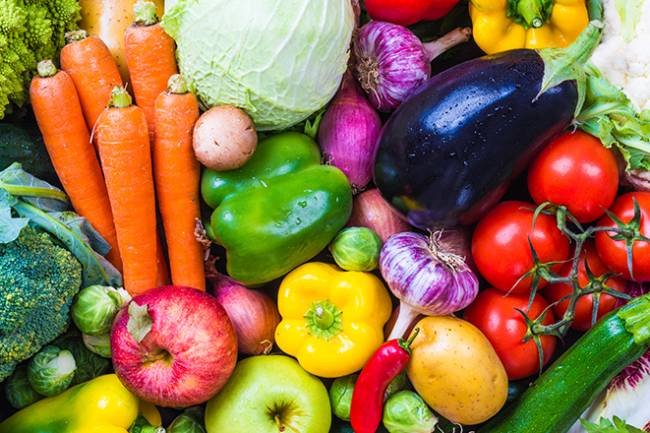Health Benefits of Spirulina
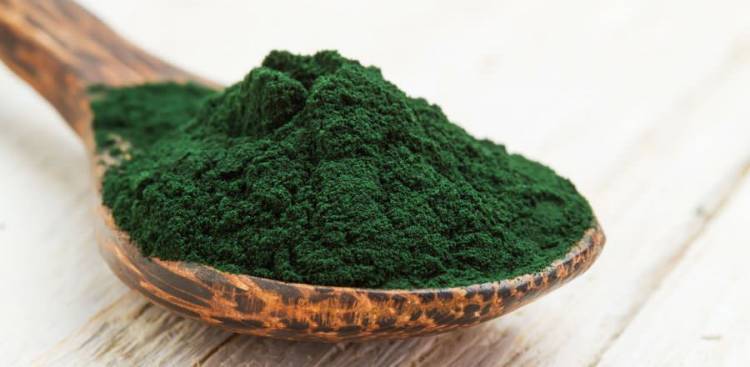
Spirulina is hailed as a superfood thanks to its incredibly high vitamin, mineral and protein content. Some fans claim that the nutritional content is so dense you could survive on it and water alone - although this theory shouldn’t be tested.
Many consumers also use spirulina for its high chlorophyll content, which can detox and cleanse the body, and there is some evidence that spirulina can benefit the body in the following ways:
- Detoxify and cleanse the body
- Strengthen hair, skin and nails
- Improve and sustain energy levels
What is Spirulina?
Spirulina is a blue/green algae that grow in fresh water. It is a simple one-celled organism which is named for the spiralling shape it makes as it grows by capturing energy from the sun.
As a food, spirulina rose to popularity as a vegan source of complete protein – it contains around 65% protein, including all eight essential amino acids and 12 of the non-essential ones.
It is also a bioavailable source of iron and calcium, and vitamins A, B and K. All of these vitamins and minerals are provided in their most bioavailable forms, which means that they are easy for the body to digest, absorb and use.
It has an ORAC score of over 24,000, which is four times the score of blueberries. The ORAC scale measures the antioxidant ability of foods – those that score high on the ORAC scale are thought to defend the body’s cells against oxidative damage which causes premature ageing. Because spirulina is low in fat and sodium, it has also become a popular addition to weight loss diets.
Spirulina Benefits
Unfortunately, the clinical evidence examining the health benefits of spirulina is limited, and some of the benefits are based on long-standing use and word of mouth rather than clinical evidence.
- Liver: Spirulina is often used to help reduce liver fat. Some preliminary studies suggest spirulina may be beneficial for patients with chronic hepatitis and help to reduce liver damage and cirrhosis. However, if you have a chronic liver condition, always consult with your GP first.
- Detox: it is thought that spirulina can bind with heavy metals and help to remove them from the body. It contains chlorophyll - one of nature’s most powerful detoxifying agents - which helps to rid the body of toxins.
- Energy: In recent years, the focus has moved to spirulina’s benefits for exercise and recovery, and it is increasingly included in protein shake mixes to support strength and energy levels. spirulina is not a stimulant so doesn’t cause spikes and crashes in energy levels – the B vitamins and other nutrients provide consistent and sustained energy levels.
- Vision: Spirulina is rich in carotenoids, which are essential for the maintenance of healthy vision particularly in changing light conditions and as the eyes age. In fact, by weight spirulina provides 14 times more beta-carotene than carrots.
- Malnutrition: Spirulina is being used to fight malnutrition in developing countries. A number of organisations are developing spirulina-enriched foods to provide malnourished children and adults with a concentrated sourced of vitamins, minerals and proteins. Another key reason spirulina has been selected for this role is that it has shown promise in helping the body to absorb nutrients when it has lost the ability to absorb normal forms of food.
- Allergies: High doses may be beneficial in reducing allergy symptoms such as a runny nose and itchy eyes. A 2005 study published in the Journal of Medicinal Food found that spirulina may benefit nasal allergies, such as allergic rhinitis. Participants were split into three groups; one group took spirulina 1000mg daily, the second group took 2000mg spirulina, and the third group took a placebo. At the end of the twelve-week trial, participants taking the placebo and 1000mg spirulina had no improvements, while those taking 2000mg per day saw significant improvements in their allergy symptoms.
How Much Should I Take?
When purchasing spirulina supplements or powder, it’s important to research your brand and choose organic spirulina. The nutritional value heavily depends on the conditions in which it is grown, and so opting for organic varieties ensures that it was grown in pesticide-free conditions with plenty of sunlight and moderate temperature levels.
People often take between 200mg to 600mg per day, but doses of 10,000mg have been used safely. In powder form, it is popularly added to food or smoothies. However, some people find the taste unpleasant – the smell and taste are similar to seaweed – and so opt for supplement tablets instead.
Spirulina Side Effects and Complications
Spirulina is very safe. It is also thought to be safe to take during pregnancy, and the high iron content makes it beneficial to mother and child.
There are no indications that spirulina interacts with any prescription medications. However, as spirulina can stimulate the body’s immune response if you are taking any medication to suppress the immune system, check with your GP prior to supplementation.

 Nicole
Nicole 